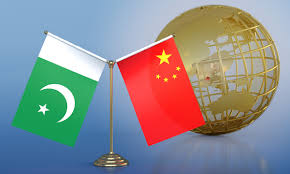Sherry Rehman issues urgent call for global support amid devastating flood losses in Pakistan

Liaquat Ali
Islamabad: Vice President of the Pakistan People’s Party and Senator, Sherry Rehman, issued a strong and urgent statement on social media platform X regarding the extensive damages caused by recent floods in Pakistan. She highlighted the staggering impact on infrastructure, agriculture, and the economy, while urging the international community to share the burden of recovery.
“According to private estimates, restoring roads and bridges damaged in the recent floods will cost $333 million,” said Sherry Rehman.
She revealed that agricultural losses have soared to $3.7 billion, with nearly 10 million acres of land submerged, and over one million livestock lost to the floods.
Rehman also warned of declining foreign exchange reserves due to reduced exports of rice, sugar, and textiles, key sectors of Pakistan’s economy.
“The real question is: where will we find the funds for such massive recovery?” she asked.
Rehman stressed the importance of international burden-sharing, saying:
“The international community must share the burden of this loss and devastation. So far, we have not made a formal demand in this regard.”
She reminded the world that Pakistan has yet to fully recover from the $30 billion in damages caused by the 2022 floods, underlining that the country cannot face repeated climate disasters alone.
“We need new financial support, not reallocated or deferred funds,” she emphasized.
“Pakistan is already trying to manage a public debt of $280 billion. We need aid in the form of grants, not loans,” she added.
Rehman clarified that this is not a plea for charity:
“Funding for recovery and resilience is our right, not a donation.”
She highlighted Pakistan’s minimal contribution to global greenhouse gas emissions, arguing that:
“A heatwave reaching 53°C cannot be our sole responsibility.”
Pointing to the scale of devastation, she said that remapping canals, building water reservoirs, ensuring safe relocation of communities, and improving drainage systems cannot be achieved overnight.
“The United Nations and its affiliated agencies must respond immediately,” Rehman concluded.





